« August 17, 2014 - August 23, 2014 | Main | August 31, 2014 - September 06, 2014 »
August 29, 2014
NYT op-ed: 24/7 workplace email is Bad Craziness. How about time-outs evenings and weekends?
In the New York Times yesterday, contributing writer Clive Thompson, also the author of "Smarter Than You Think: How Technology Is Changing Our Minds for the Better”, suggests that Americans should strive to be more like our suddenly more-mellow cousins in Germany (yeah, Germany) and end the tyranny of 24/7 emails. We should have regular--yes, daily--off-periods or "time-outs" for workplace email. In America, would such a regime be wimpy, sane or something in between? At WAC/P, we like and support the idea. The Western preoccupation with constantly checking business and workplace email has become an hysteria that feeds on our employee-as-peasant mentality and increasingly has little to do with thinking and solving problems, i.e., doing work. Thompson's "radical" if sane piece begins:
This Labor Day weekend, odds are you’ll peek at your work email on your “day off” — and then feel guilty about it.
You might envy the serene workers at Daimler, the German automaker. On vacations, employees can set their corporate email to “holiday mode.” Anyone who emails them gets an auto-reply saying the employee isn’t in, and offering contact details for an alternate, on-call staff person. Then poof, the incoming email is deleted — so that employees don’t have to return to inboxes engorged with digital missives in their absence. “The idea behind it is to give people a break and let them rest,” a Daimler spokesman told Time magazine. “Then they can come back to work with a fresh spirit.”
Limiting workplace email seems radical, but it’s a trend in Germany, where Volkswagen and Deutsche Telekom have adopted policies that limit work-related email to some employees on evenings and weekends. If this can happen in precision-mad, high-productivity Germany, could it happen in the United States? Absolutely. It not only could, but it should.
White-collar cubicle dwellers complain about email for good reason. They spend 28 percent of their workweek slogging through the stuff, according to the McKinsey Global Institute. They check their messages 74 times a day, on average, according to Gloria Mark, an authority on workplace behavior and a professor at the University of California, Irvine.
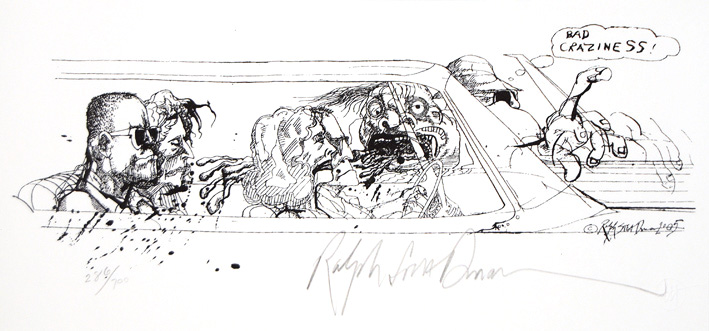
Image: Ralph Steadman
Posted by JD Hull at 08:35 AM | Comments (0)
August 27, 2014
America, Good Works & Bad Taste: The What About Clients/Paris Head-Out-Of-Your-Ass-Now Challenge.
Take heed that you do not your alms before men, to be seen of them: otherwise you have no reward of your Father which is in heaven. That thine alms may be in secret. --Gospel of Matthew, Chapter 6, Verse 1-4
What happened to the secret, anonymous or quiet side of good works and giving? --WAC/P, 2014, Jackson 5
The recent ALS Ice Bucket Challenge was tacky, tasteless, fun and great because it raised tons of money for and awareness about the fight against amyotrophic lateral sclerosis (ALS), often referred to as "Lou Gehrig's Disease". The Challenge entailed a fun ceremonial drenching by ice water and the promise of check followed by a challenge to your (most famous?) friend to do the same. See Jon Bon Jovi's video below. But to some it was also the pinnacle of our showiness and cluelessness about giving money to deserving causes and, especially, helping the less fortunate. Americans have always supported charities and, thanks to their leadership, Generations X and Y seemed to have amped up the altruistic impulse. Money is not enough. It's personal. You give your time.
Everyone, it seems, devotes their time and energies regularly to a worthy cause or institution. Above all, we talk or write about it at great length. We have become so public and even flamboyant with our services-to-others that information about them now routinely (almost as if it's seen as required) appears on resumes, CVs and job applications. Also being disclosed is information about religious affiliations, often in connection with some community service. We see it on Facebook and other Internet musings and hear it in casual live conversation. Community service these days is not only nice. It's cool, and a social "must", too. Americans of all ages and demographics are compelled to give us an inside peek at their personal goodness.
Many of the resumes I've seen over the past decade have information on community service or religious affiliation. Some are tolerable. Some of them scream "Hi, I'm a twit". Certainly, lots of these disclosures are sincere and done advisedly; people want us to know who they really are. But they are trumpeting, whether it's true/sincere or not, "hey, I am a nice person, and concerned about others" (i.e., service in the community) or that "hey, I am a devout person, and I'm both nice and honest" (i.e., affirmative identification with a religion). I am getting tried of it.
Keep that stuff to yourselves, maybe? Quit embarrassing yourselves. If the information we don't really want from you is true, we are confident that it will shine through you somehow in an interview or in the workplace. We want you to grow and benefit from the gift of community service, and your faith if you have one. But please don't talk about it. Showing us is just fine.
What happened to the secret, anonymous or quiet side of good works and giving? Wasn't that the original idea of the spirit, at least, that gave life to our giving?
One possible solution is the "What About Clients/Paris? Good Works Head-Out-of-Your-Ass-Now Challenge".
Here is how the WAC/P? challenge works:
Starting now, for one full year, any time, energy or money you or your family expend to (a) help the less fortunate, (b) find a cure for a disease, (c) fight or correct an injustice or (d) otherwise engage in any service or act of kindness, whether or not planned, shall be expended anonymously, secretly or, in certain cases, as quietly as possible. By way of example, and without limitation:
1. You may not write or mention that currently you or any member of your family are pitching in twice a week in the "inner city" at Jojo's Soup Kitchen,
2. That you took a leave-of-absence without pay to volunteer for 6 weeks at the Children's Hospital in Chile after the earthquake,
3. That you or your husband gave pro bono financial advice to the Church of the Final Thunder (or that your kid mowed the minister's lawn),
4. That you helped an elderly traveler fix her spare tire or help her get to her doctor's appointment on time.
5. You get the idea.
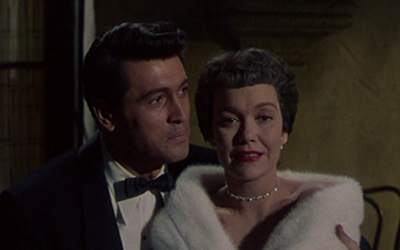
Rock Hudson and Jane Wyman in Magnificent Obsession (1954), based on the book by Lloyd C. Douglas (1929)
Posted by JD Hull at 11:01 AM | Comments (0)
This Recession won't die any time soon. Discuss.
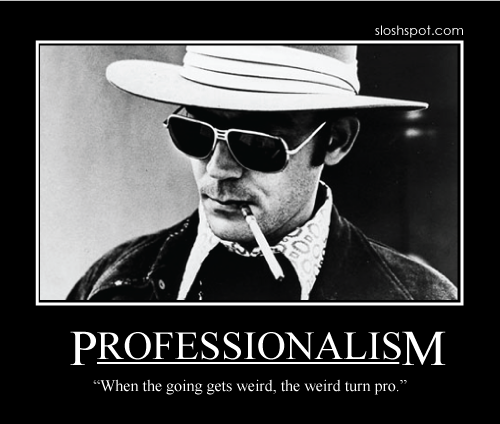
Posted by JD Hull at 12:37 AM | Comments (0)
August 26, 2014
Today's Sensitive Hollywood Moment.
Or Overheard in Santa Monica. A true risk-taker college friend--no matter what they tell you 95% of Duke grads are not bust-out thinkers and leaders but instead very bright, pleasant, straight-up bourgeois citizens who play it safe; ironically, and by stealth, my intellectually über-wide open beloved alma mater even teaches them how to do this so they can replicate their parents if they so chose*--who failed miserably a bunch of times in the movie business but finally made it big in the writing-production side of nighttime television has this saying: "Dude, I've been broke--but I've never been poor." I love that.
* I loved Duke and am grateful beyond words to have been admitted. I expected that the university and my classmates would change my life in wonderful ways--and they did. I chose it over Dartmouth and some other fine schools. But we should all expect the world's "great" universities to drive new ideas, produce new kinds of people and make everyone, frankly, a little uncomfortable. They should never uphold the status quo.
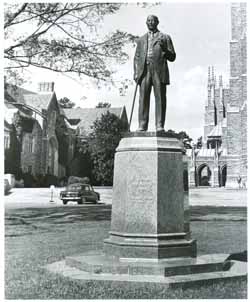
Tobacco entrepreneur James B. Duke. West Campus, Duke University.
Posted by JD Hull at 02:26 PM | Comments (0)
In The Atlantic: Dumbing down education, killing college and scamming law students.
In case you hadn't heard, on page 62 of the print edition of the September issue is "The Law-School Scam" by Paul Campos. It stars the InfiLaw System's three laws schools Florida Coastal, Arizona Summit (previously Phoenix) and Charlotte, Michigan's Thomas M. Cooley, Chicago's John Marshall and a few other law schools with names like 1920s-era apartment buildings which, before the 2008 Recession, were some of the players in the strange but unrelenting movement to make it easier and easier for people to become lawyers in the United States. If much of the Campos's well-written article seems familiar, it's because (1) several blogs have specialized in the "law school scam" (one blog even includes the phrase in its title) over the past four or five years and (2) David Lat's Above The Law has done a nice job of reporting on the strangest of all educational sagas: declining applications to "for-profit" law schools that are arguably of marginal quality in the first place coupled with people not particularly well-suited to attend law school applying anyway, getting in, running up huge debt to get through and expecting to obtain law jobs after graduating that simply no longer exist. Which reminds us. Don't miss the comments following the article. This subject makes folks angry.
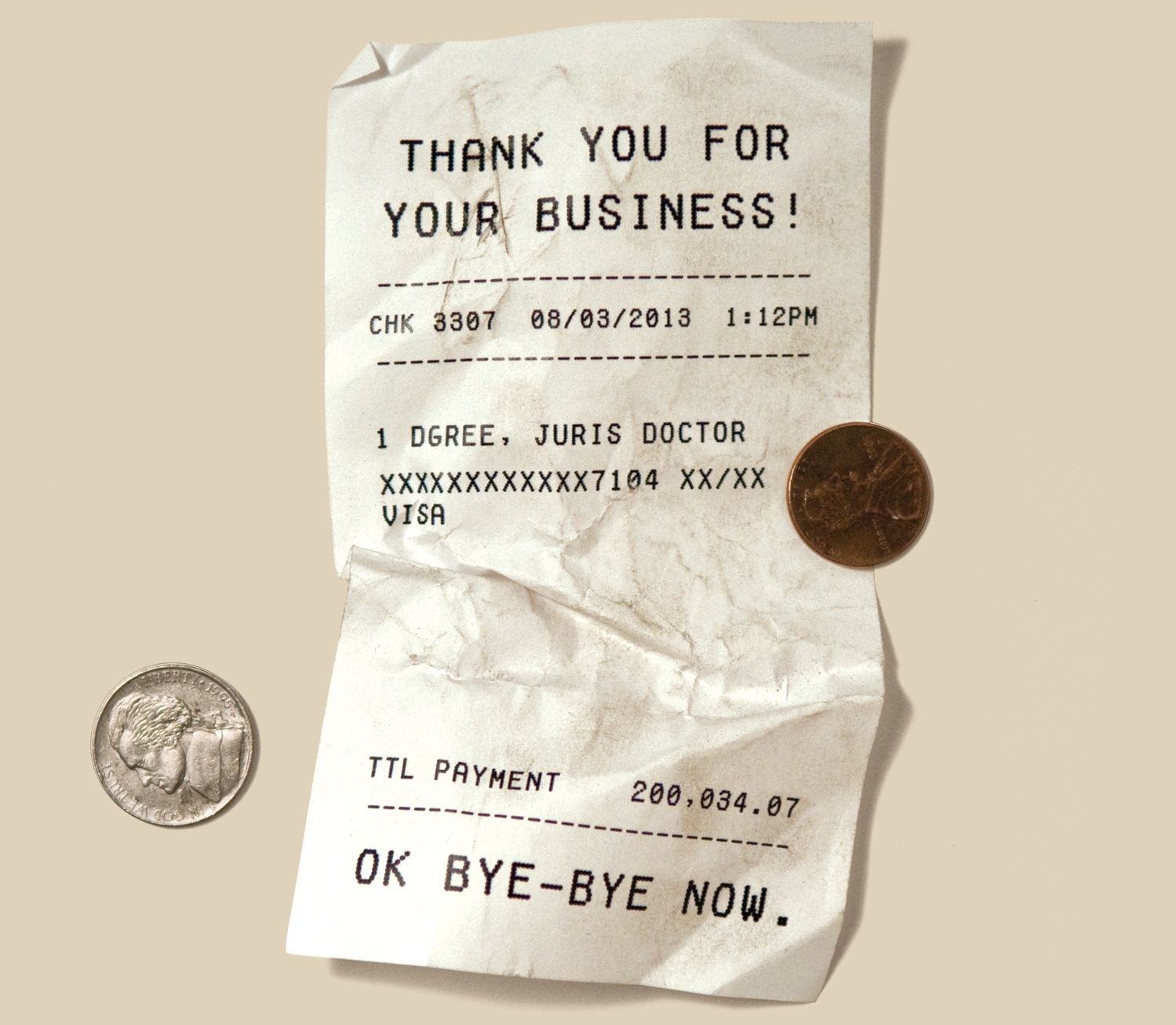
Photo: Matt Dorfmann
Posted by JD Hull at 04:38 AM | Comments (0)